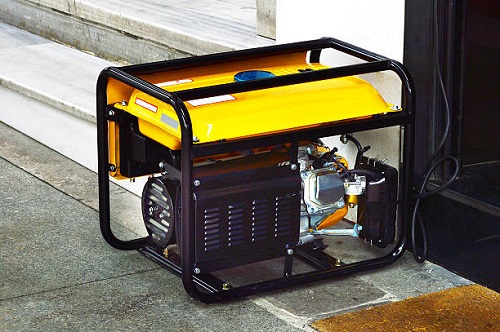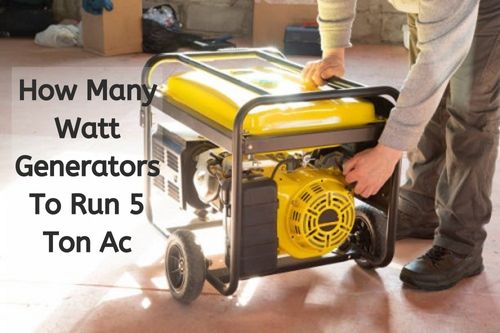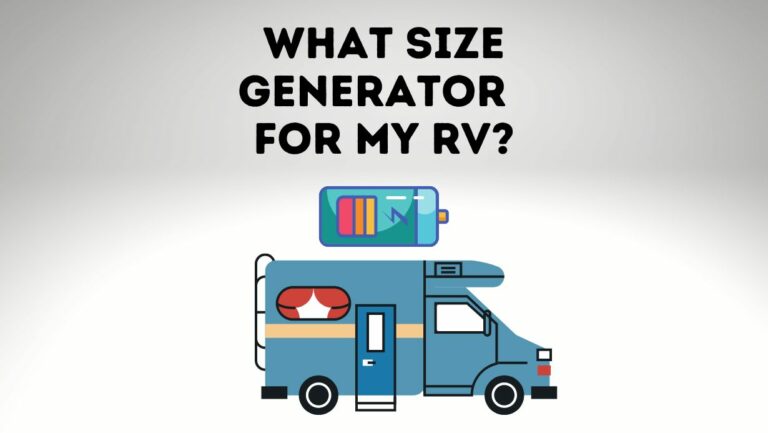
Generators are a crucial part of keeping your home running during a power outage, but can you run one overnight? Running your generator for an extended period of time can cause damage and shorten its lifespan.
In this blog post, we’ll explore the pros and cons of running a generator overnight and offer some tips on doing it safely. Stay safe and power on!
Can You Run A Generator Overnight?
You can run it overnight to power your home if you have a generator. This will allow you to keep your lights on and your appliances running. However, you need to be aware of the risks involved with running a generator overnight.
One of the biggest risks is carbon monoxide poisoning. Carbon monoxide is a colorless, odorless gas that can be deadly. When you run a generator, it produces carbon monoxide. If the generator is not properly ventilated, this gas can build up and cause serious health problems.
Another risk is fire. If the generator is not properly maintained, it can catch fire. This is especially true if you are using a gas-powered generator.
Precaution
If you are going to run a generator overnight, there are some things you can do to minimize the risks.
First, make sure the generator is properly ventilated.
Second, keep the generator in a well-ventilated area.
Third, never use a gas-powered generator indoors.
Fourth, make sure the generator is properly maintained.
Fifth, never refuel a running generator.
Sixth, have a carbon monoxide detector in your home.
Seventh, make sure you know how to properly operate the generator.
By following these tips, you can minimize the risks associated with running a generator overnight. However, it is still important to be aware of the dangers involved. If you have any doubts, it is always best to consult with a professional.
Wattage Needed For Overnight Use
If you want to run your generator overnight, you’ll need to calculate the wattage your devices require and find a generator with a corresponding wattage rating.
The first step is to find out the wattage of the devices you want to run overnight. You can usually find this information on the device itself or in the owner’s manual.
Noise Levels
Generators are loud and can be heard from a distance. If you are trying to get a good night’s sleep, using a generator in proximity is not ideal. If you must use one, try to keep it as far away from your sleeping area as possible.
Is It Okay To Run Out Of Gas On The Generator?
If you run out of gas while the generator is running, it can cause damage to the engine. To avoid this, always make sure you have a full tank of gas before you start the generator.
Overnight use of generators is not without risks, but by taking proper precautions, you can minimize those risks. Be sure to follow the tips above and always consult with a professional if you have any doubts.
Should You Give Your Generator A Break?
It’s important to give your generator a break every few hours, even if you’re using it overnight. This will help prevent damage to the engine and will prolong the life of your generator.
When you’re using your generator overnight, it’s important to be aware of the risks involved. However, by taking proper precautions, you can minimize those risks and keep your home running during a power outage. Stay safe and power on!
How Long Do Backup Generators Last?
The lifespan of a backup generator depends on several factors, including how often it’s used and how well it’s maintained. However, with proper care and regular maintenance, most generators can last for years.
If you’re using your generator on a regular basis, it’s important to have it serviced by a qualified technician at least once a year. This will help ensure that it’s running properly and help prevent any potential problems.
Conclusion
Running a generator overnight can be a great way to keep your home or business power in the event of a power outage. However, there are a few things you should keep in mind if you plan on running your generator for an extended period of time.
Always make sure that you have enough fuel to last the entire night. It’s also important to keep your generator in a well-ventilated area, as running it for long periods of time can produce dangerous fumes.
Finally, be sure to check your local ordinances before operating your generator overnight, as some areas have noise restrictions that could result in a fine.






